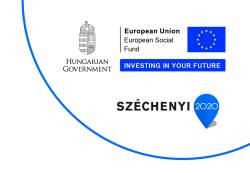Sustainability
ESG sets a new course for the construction industry
Last December, the Hungarian legislature passed the so-called ESG Act, which is an important step towards making the steps taken by major economic players to achieve sustainability more transparent and comparable. The ESG is a set of sustainability directives and regulations in force in the European Union, and one of the main tasks of the Hungarian ESG Act is to support the implementation of the European Green Deal and its enforcement in Hungary. The mainstreaming of sustainability issues will undoubtedly be one of the most important factors in shaping the regulatory and investment environment for economic operators at national, EU and global level.
The construction and real estate sectors are particularly affected due to their high energy consumption and emissions, their physical and aesthetic role in the environment and their social impacts. As ESG regulations and guidelines become more stringent, companies in the sector will have to make ever more profound changes to their current production technologies. The ESG perspective is becoming increasingly important in the expectations of clients and investors, and ESG compliance is a growing requirement in banking practice.
A new industry-wide strategy - innovating for climate action
At the same time, the implementation of ESG principles is a breakthrough for innovative companies. From engineering firms to contractors and property investors, the strategy of all players in the sector is expected to be driven by the same element: a drive to meet sustainability targets and a greater willingness to invest in innovations that help achieve them. Sustainability trends are likely to increase the return on investment in innovation in all areas of the construction industry, be it design, construction technology or project management.
The European Green Deal also includes targets that directly affect the energy use and emissions of buildings. These include promoting deep renovation as a priority to improve the energy efficiency of buildings, increasing the number of carbon neutral and energy efficient buildings, increasing the use of modular construction and promoting the use of recycled materials. Operators in the sector need to develop a strategy to credibly communicate to their investors that they can adapt to the climate expectations and regulations of the business environment and will be winners from the expected further tightening of these.
New skills need to be built at company level
ESG regulation and market demands for sustainability require the building of new capabilities in construction companies. Some of these - mainly technical skills - require the acquisition of new technologies and knowledge, while others relate to the socially responsible operation of the business. The ESG strategy at the company level should optimally include the process of acquiring new capabilities, the involvement of external expertise and subcontractors. It will also be necessary to align the strategy and key performance indicators with subcontractors and partners, whereby a company can set specific ESG requirements for its subcontractors and partners.
The ESG Act, which was passed in December and came into force in January, already includes reporting requirements that most companies did not have before. In order to comply with the law's sustainability due diligence requirements, companies need to be aware of the standards and best practices against which their ESG reports and accounts will be audited. Best practices will emerge through knowledge sharing and interaction between companies, and communication platforms and consultants with cross-sector clients will play an important role in this.
The role of engineering firms in ESG compliance
ESG regulations have the effect of enabling market participants to assess companies' activities transparently and objectively, including from a sustainability perspective. At all levels of the construction and property sector, including the maintenance and resale of the building once delivered, the inclusion of sustainability considerations is a value-adding factor and is expected to become even more so in the future.
The 'E' in ESG, Environmental, refers to environmental impact. In the construction industry, the ESG quality of a building - whether residential, office or industrial/logistics - is determined at the design stage. Several fundamentally different architectural concepts can be developed to fulfil a given function. In addition, the materials and construction technologies chosen will determine the limits of energy consumption and emissions from the construction phase through to operation. With regard to the "S" (Social) element of ESG, Social Responsibility, a building can be discussed with the relevant social groups at the design stage so that any changes do not entail disproportionate costs. The plans submitted for consultation must also answer the question of the social and urban impact of the building once it is completed. The 'G' in ESG also includes Governance, Transparency and Accountability - a design practice can establish a Building Information Modelling (BIM) system at the design stage to provide comprehensive information about the whole life cycle of a building, supporting responsible communication and decision making from design through construction to maintenance.
Winning strategies for sustainability
Overall, the rise of ESG thinking is seen by many industry players as an opportunity rather than a constraint. The capital market is assessing the ESG compliance of companies and projects. The capital market is also being helped by regulators' increasing transparency and measurability of companies' activities. Investing in innovation, moving towards sustainable production structures, and developing long-term partnerships across the value chain is a sound strategy.
ESG Pilot - Advisory Programme at CÉH Zrt.
In line with CÉH's commitment to sustainability, adaptability to the evolving business landscape and expansion of our international presence, we established an ESG strategy in 2022. Our strategy aims to quantify our own impacts, improve our ESG data collection and produce a high quality ESG report. The ESG Pilot Consultancy Programme plays a crucial role in effectively supporting these efforts.
Key benefits of the ESG Advisory Programme for our business include
- Collaboration with major national and international companies: We work closely with many prominent companies, both domestically and internationally. These organisations have increasingly high expectations of the ESG practices of their business partners. In particular, the BMW Group, for whom CÉH zRt. is managing the construction of its factory in Debrecen, places great emphasis on ESG compliance. Meeting their strict ESG requirements is crucial to our involvement in the development of the factory and the necessary documentation. Improving our ESG performance is strategically important to meet our partners' expectations and maintain our market competitiveness.
- The construction and development industry is being significantly impacted by regulations supporting the transition to a greener economy and more stringent expectations for green financing, such as the EU Taxonomy. In order to ensure the long-term green financing of CÉH Zrt.'s value-creating work by business partners, it is essential to continuously improve the organisation's ESG maturity.
- An important future goal of CÉH Zrt. is to increase the sustainability knowledge of its employees and supply chain, and to promote the principles of sustainability in engineering and public discourse. Regular and transparent communication of our ESG-related goals and results can be a key tool in achieving this goal.
The project was awarded a grant of 14,850,000 HUF, equivalent to fourteen million eight hundred and fifty thousand HUF. This grant represents 100% of the total eligible costs of the project.
Project completion date: 31 May 2023.
Project identification number: GINOP-1.1.7-17-BÉT-6-015
The full ESG report is available on the following link:

